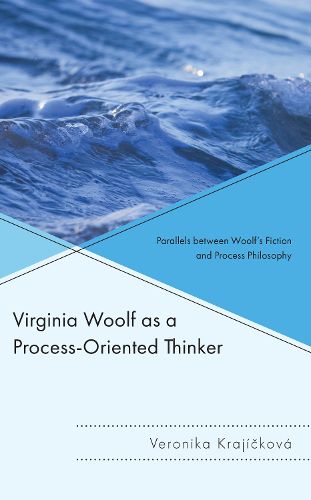Readings Newsletter
Become a Readings Member to make your shopping experience even easier.
Sign in or sign up for free!
You’re not far away from qualifying for FREE standard shipping within Australia
You’ve qualified for FREE standard shipping within Australia
The cart is loading…






Virginia Woolf as a Process-Oriented Thinker: Parallels Between Woolf's Fiction and Process Philosophy introduces Virginia Woolf as a nondualist and process-oriented thinker whose ideas are, despite no direct influence, strikingly similar to those of Alfred North Whitehead. Veronika Krajickova argues that in their respective fields, literature and philosophy, Woolf and Whitehead both criticized the materialist turn of their time and attempted to reattribute importance to experience and undermine long-rooted dualisms such as subject and object, the animate and the inanimate, the human and the nonhuman, or the self and the other. By erasing the gaps between these dualities, the two thinkers anticipated the poststructuralist thought with which Woolf has been anachronically associated in the last decades. Krajickova shows that there is no need to analyze Woolf's fiction via critical and philosophical theories that developed much later. This book demonstrates that Woolf and Whitehead's ideas may help us adopt more ecologically friendly, selfless, intersubjective, and harmless modes of being in the present day. Both figures emphasize the intrinsic value and importance of each constituent of reality and teach us to appreciate the aesthetic values dispersed throughout our environment.
$9.00 standard shipping within Australia
FREE standard shipping within Australia for orders over $100.00
Express & International shipping calculated at checkout
Virginia Woolf as a Process-Oriented Thinker: Parallels Between Woolf's Fiction and Process Philosophy introduces Virginia Woolf as a nondualist and process-oriented thinker whose ideas are, despite no direct influence, strikingly similar to those of Alfred North Whitehead. Veronika Krajickova argues that in their respective fields, literature and philosophy, Woolf and Whitehead both criticized the materialist turn of their time and attempted to reattribute importance to experience and undermine long-rooted dualisms such as subject and object, the animate and the inanimate, the human and the nonhuman, or the self and the other. By erasing the gaps between these dualities, the two thinkers anticipated the poststructuralist thought with which Woolf has been anachronically associated in the last decades. Krajickova shows that there is no need to analyze Woolf's fiction via critical and philosophical theories that developed much later. This book demonstrates that Woolf and Whitehead's ideas may help us adopt more ecologically friendly, selfless, intersubjective, and harmless modes of being in the present day. Both figures emphasize the intrinsic value and importance of each constituent of reality and teach us to appreciate the aesthetic values dispersed throughout our environment.